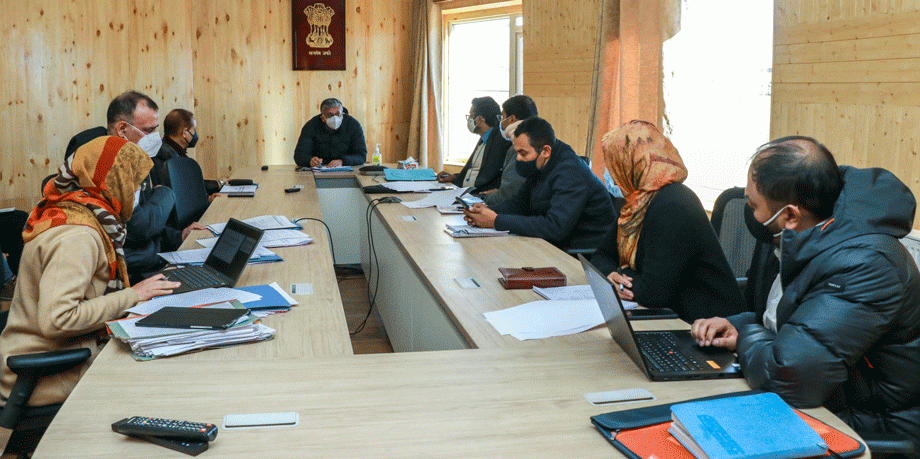UT Level Special Task Force finalizes action plan to eliminate Single-use plastic Implementation of Plastic waste management rules, 2016 also discussed

Chairman, UT Level Special Task Force (STF), Umang Narula discussed the action plan for the elimination of Single-Use Plastic (SUP) in Ladakh during a metting with concerned officers on March 19.
As per the directions given by the Chairman in the earlier meeting of the Task Force, State and District level task forces have been constituted to tackle plastic-related challenges. In order to phase out single-use plastic, identification of major stockists, retailers, sellers of banned SUP is being carried out by both the District Magistrates. The CPCB has prepared a Comprehensive Action Plan to eliminate manufacturing, storage, selling and usage of SUP items. It was informed in the meeting that the notified single-use plastic items shall be banned with effect from July 1, 2022.
The Ladakh Pollution Control Committee (LPCC) officials gave a detailed presentation on the progress made so far on the decisions taken in the first meeting of Task Force with regard to the preparation of action plans within the prescribed thematic areas under revised guidelines circulated by the Ministry of Environment, Forest and Climate Change (MOEFCC). Further, it was informed in the meeting that the Housing and Urban Development Department (HUDD) is working on the development of an app-based mechanism to address public complaints.
The Principal Secretary (Forest, Ecology & Environment), directed LPCC to get the main provisions of the amended Plastic Waste Management Rules, 2021 published in the print media for its wider publicity amongst the general masses. He reiterated that plastic pollution is a grave issue in Ladakh and all requisite measures should be taken to control this menace.
The Commissioner Secretary, A. K Sahu stated that a draft for a Comprehensive Action Plan has been prepared wherein encouraging hotels to install filtration plants could reduce plastic water bottle usage up to 80 %. He added that recycling plants would be soon established with the help of private firms and all plastic wastes will be converted to construction blocks, used in road construction and in decorative works in events such as ‘Waste to Art’ which was quite successful in the past. In the ‘rethink’ aspect, a Sustainable Procurement Policy draft shall be soon brought into effect wherein sustainable products will be identified to be procured. He also informed that self-help groups under National Urban Livelihoods Mission (NULM) are making cloth bags out of wastes which is proving useful in reducing the use of plastic bags and in the effective recycling of cloth wastes.
The Chairman exhorted the paramount importance of controlling all pollutants like plastic to protect the ecologically fragile environment of Ladakh. He also discussed the use of compostable plastic and plastic alternatives in toiletries used in hotels/guest houses which can also make a huge difference in controlling the plastic menace. He directed further use of Extended Producer’s Responsibility (EPS) for plastic waste which would make a manufacturer responsible for managing plastic waste after a consumer has used their product.
Concluding the meeting, the Chairman emphasized on conducting a sustained awareness campaign to sensitise the people on proper waste disposal and to encourage them to use alternatives in common household usage or groceries.





